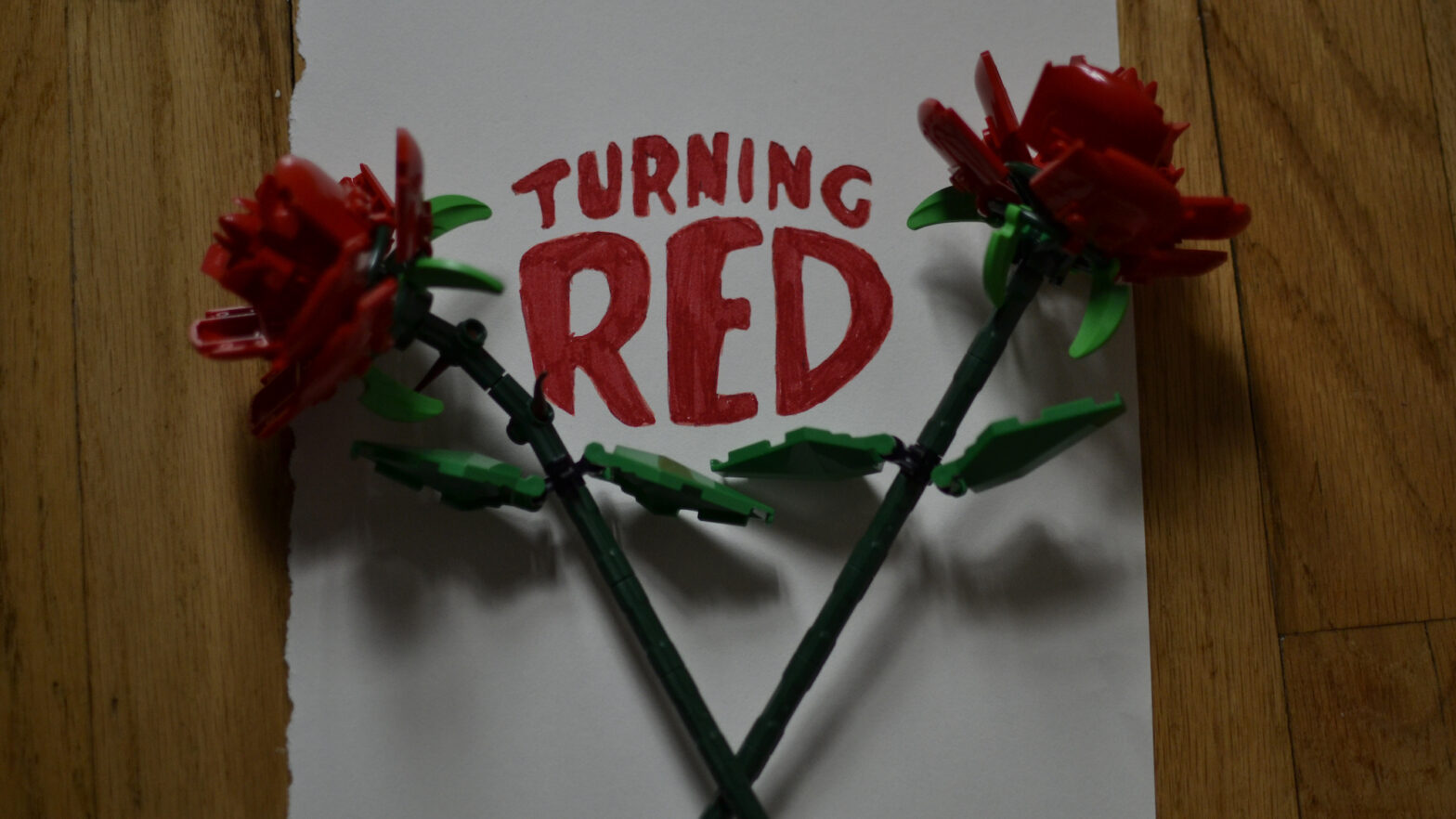The next film in Pixar’s infamous line-up, ‘Turning Red,’ directed by Academy Award winner Domee Shi and told through the eyes of a 13-year-old girl had big shoes to fill as it faced audiences with a streaming-only theatrical release.
“Turning Red,” Pixar Animation Studios newest film, reintroduces the nostalgic air of the 2000s from the eyes of a 13-year-old. Talk about CRINGE in the most relatable way possible.
But, even with a runtime of an hour and forty minutes, director Domee Shi makes this movie go by in the blink of an eye. In some ways, this is a good thing. This movie has a perfect one-and-done vibe, though I wouldn’t be surprised if there is some kind of animated series in its future. However, “Turning Red” falls nicely into the vein of what Pixar does best: beautiful animation and messages that pull at your heartstrings.
Following the character of Meilin — voiced by Rosalie Chiang — audiences get a compelling protagonist through and through. However, this film presents something even more important than Meilin as an individual focal point: Her friends Miriam, Priya and Abby, who are played by Ava Morse, Maitreyi Ramakrishnan and Hyein Park, respectively. They are perhaps Meilin’s most important relationships, alongside her mother Ming, voiced by Sandra Oh.
At its core, “Turning Red” presents the protagonist’s struggle to balance her relationship with her parents while also discovering her own individuality, all through the lens of a growing 13-year-old.
This idea is something that is not foreign to Pixar. When looking at some of their most recent films, such as “Soul,” “Luca” and “Coco,” it becomes clear that Pixar’s emphasis is on individuality and balancing it in your relationships. The idea of being true to yourself while navigating the world around you is no easy feat – whether this means going against the grain of your family or completely shaking up the world around you.
This is also something that Pixar is doing through the lens of many different perspectives. Something notable about the aforementioned films, along with “Turning Red,” is how they all highlight different cultures and backgrounds. Pixar has made it possible for people of many different backgrounds to see themselves in the films that they consume.
When these themes are combined with the use of 3D and 2D animation styles, the end result is simply beautiful to look at. The vibrant colors and quirky 2000s-style motifs will wrap you in a warm safety blanket of nostalgia. The opening credits alone resemble the opening to the sitcom “That’s So Raven” combined with the animated version of Lizze’s inner thoughts from the show “Lizzie Mcguire.” For audiences who grew up watching these shows every day after school, the “Turning Red” opening recalls childhood memories mixed with the stunning and comforting vibe of Pixar animation.
Moving on to, of course, the thing that simply cannot go without being spoken on: the soundtrack of the film. Particularly the incorporation and foundation of the band 4*Town, a boy band specially curated for this movie featuring Jordan Fisher as Robaire, Finneas as Jesse, Josh Levi as Aaron Z, Topher Ngo as Aaron T and Grayson Villanueva as Tae Young. The band, despite being fictional and animated, hit No. 50 on the Billboard Top 100 charts with their incredibly catchy single “Nobody Like U.” This track is featured so often in this film that you will no doubt be singing along to it well after the credits have rolled.
However, the most important aspects of this film can be boiled down to these two quotes. First, “I see you Mei-Mei, you try to make everyone happy, but are so hard on yourself. And if I taught you that. I’m sorry.” This hard-hitting quote was said in a moment of desperation by Meilin’s mother, Ming, in an attempt to connect with her daughter — who she had slowly been disconnecting from both physically and emotionally throughout the course of the movie. This is a key takeaway of the film as it has an emphasis on generational healing. When Ming apologizes for the role she played in Meilin’s self-critical nature, it sets a tone of acknowledgment of an idea that often remains unspoken.
Hurt people hurt people — but the cycle doesn’t always have to continue that way.
The second of the two most important quotes comes at the end. “We’ve all got an inner beast. We’ve all got a messy, loud, weird part of ourselves hidden away. And a lot of us never let it out. But I did. How about you?” The line is delivered by Meilin in narration at the end of the film as she summarizes everything she learned throughout the movie.
Pixar is famously all about teaching lessons through its films, and one of the most important lessons you can take away from this movie is to be yourself — fully and freely. The movie is undoubtedly a cringefest, but that is what makes it work, as well as what plays directly into its closing message. When you are 13, you aren’t necessarily worried all the time about what people will think of you, you are just doing you. It’s when you get older and look back and think “Oh goodness, that was so embarrassing” because now you are looking at it all through a much more critical lens. “Turning Red” brings back that freedom you felt when you were 13 years old, and having a crush on a boy that works at a corner store was life or death.
Overall, this film is witty, relatable and downright adorable. It is a fun watch when you need to clear your head or have something on as you’re doodling in a notebook. So, if you need that good-ole 2000s nostalgia fix and suddenly have a craving for aesthetically pleasing animation, this is the film for you.
Remember it’s okay to get messy, loud and even a little weird.








Leave a Reply